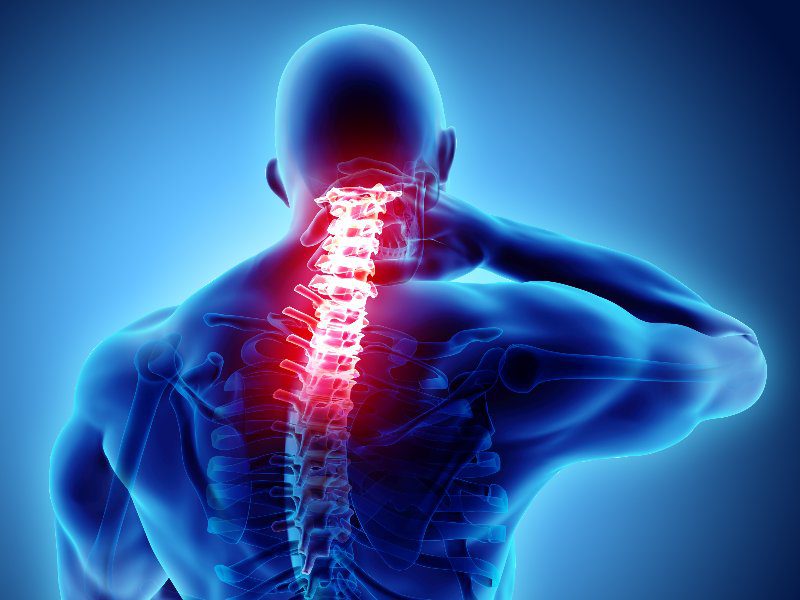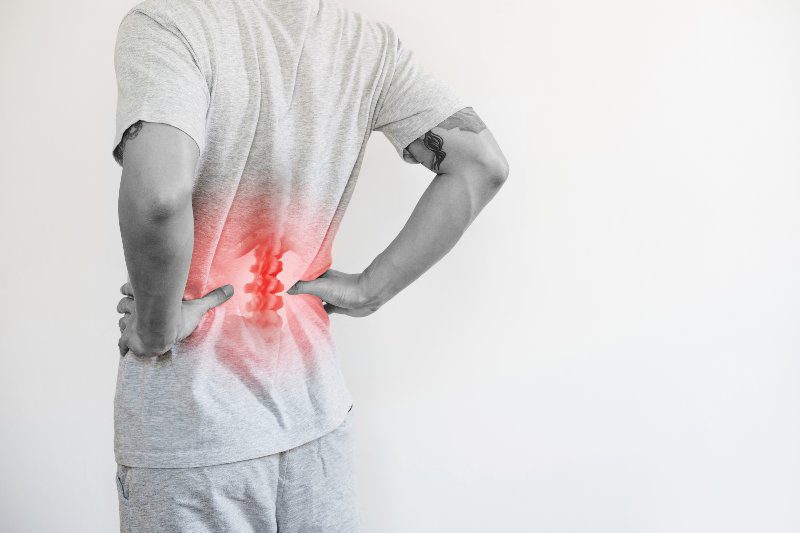The Top 5 Symptoms of Chronic Pain in Veterans
By Elizabeth Crain
9/14/2022
Chronic pain may affect more than 50% of the 18 million Veterans in the United States, so if you’re a Veteran living with the symptoms of chronic pain, you’re not alone. However, at Telemedica we believe that you deserve to live a pain free and healthy life after your time in service to your country.

While the symptoms of chronic pain may wax and wane, and can sometimes be difficult to identify, chronic pain can have lasting effects on the body – in some cases, chronic pain may arise as a result of another condition. This is what we would call a secondary service-connection. The symptoms of chronic pain might include phantom pains from an amputated limb, a back or spinal cord injury, or something similar. It is also possible to sustain an injury that goes unnoticed, or develop a small injury that can worsen over time with age or aggravation.
Chronic pain can surface unexpectedly for many Veterans at any point in their lives, so the topic of chronic pain is often a relevant conversation. We’re here to share five symptoms of chronic pain that can help you catch this condition sooner rather than later.
What is Chronic Pain?

If you’re experiencing discomfort in one or more areas, and you can’t seem to find relief, it may be time to see a medical professional and/or obtain a diagnosis.
Chronic pain is defined as persistent pain lasting for at least twelve weeks and that can significantly burden daily life – this pain can range from a nagging sensation to a pain that is more intense and overwhelming.

What Are the Symptoms of Chronic Pain?

It can be difficult to spot chronic pain symptoms if you don’t know what you’re looking for.
Since chronic pain can start as minor soreness and increase drastically in intensity, spotting this condition early can make long-term care much easier. Early detection and treatment can prevent this condition from worsening overtime.
If you were in active duty during your time in the military, you may have developed a habit of dismissing minor aches and pains – writing it off as something that simply “comes with the territory.” However, it is important to let your body rest and recover and seek help for these aches and pains – especially if they don’t have a logical explanation for developing.

When seeking out help or treatment, identifying the five most common signs of chronic pain is a great place to start. The most common signs are:
- Joint pain
- Burning pain
- Muscle aches
- Fatigue
- Depression or anxiety
While chronic pain can be consistent, you may have some days where the flare-ups are worse than others. A great practice is to keep a pain journal so you can study your symptoms and make educated decisions in finding help.
How to Treat Chronic Pain

Treating chronic pain can feel like an uphill battle, especially when you’re trying to tackle it on your own.
Luckily, a wide range of resources and support is available to you. While we may not have found a cure-all solution for chronic pain, there are many options to ease symptoms and provide a higher quality of life while you are identifying the root cause of your pain.

From traditional avenues to lifestyle adjustments, here are some ways to find relief from chronic pain.
- Medication: For acute pain, many medications can ease symptoms in the short-term but may not be a sustainable long-term solution. It’s important to talk to your doctor before starting any new medications and to understand the potential risk factors and possible side effects involved. If your pain makes daily tasks feel unbearable, medication can alleviate your symptoms while you address the underlying issues. When you’re no longer in debilitating pain, you can seek out long-term treatments and solutions that better fit your needs if necessary.
- Massage therapy: Massage therapy can provide great relief for those struggling with joint and muscle pain. There are varying techniques, but overall it involves rubbing and kneading muscles and joints to relax tense muscles and alleviate pain.
- Talk therapy: Veterans seeking treatment for chronic pain may find that there’s a connection between their symptoms and PTSD. Mental health conditions can exacerbate pain and make it harder to manage. Talk therapy can be an effective way of managing both.
- Mindfulness: Just like talk therapy, mindfulness techniques can alleviate some of the daily struggles with pain. Meditation for relaxation and journaling about your symptoms can increase awareness and help you locate the source of the pain. In the long run, this can be a good way to find a long-term solution.
- Healthy living: Lifestyle changes can make all the difference in managing chronic pain. You’ll see improved results when your body is well-equipped to deal with your condition. Eating well and regularly exercising are great places to start. It’s also important to drink lots of water and take vitamins and supplements that support your overall cellular health. Be sure to discuss the right supplement regimen with your doctor or natural path before taking new vitamins or supplements.

The best way to alleviate your chronic pain is to treat it at the source. Talk to your doctor about your chronic pain and remember to include as much detail as possible when talking about your symptoms. It may be difficult to identify where the pain originated, but it is possible to reverse your chronic pain and live comfortably.
Many options are available to you for resources and support in your journey. You don’t have to struggle alone. After your time in service, it’s time to relax and focus on caring for yourself.
Reach Out to Telemedica to Start Your Journey
If you’re a Veteran experiencing chronic pain, contact Telemedica today. Our team can provide you with a Nexus Letter and get you started on the path to receiving your VA benefits.
Take a look at our provided services and begin easing your symptoms as soon as possible. Let us help you reclaim your health and your life.